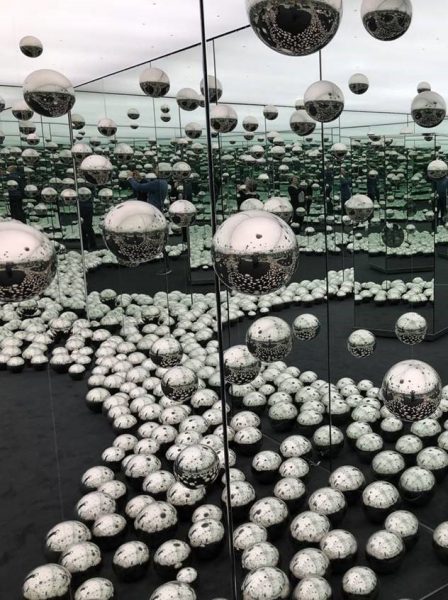Looking in the Mirror During COVID Times: Who’s Looking Back?
I started the beginning of our pandemic response talking about stockpiling of toilet paper. While that topic might have dominated many conversations early in our collective pandemic response, more substantial subjects that have traditionally received superficial or fleeting discussions in the public sphere, are now widely debated. More than ever before, we are talking about mental health, guaranteed income, food insecurity, housing, living wages, racism and the role of women.
In my job at Stella’s Circle, a community organization focused on social justice and recovery by offering housing, counselling and employment services, we often see people who face many barriers and who want to become more independent and sustainable for themselves and their families. Most live in poverty. Long-term solutions of social issues need to be rooted in social justice, empathy, recovery and empowerment. Band-aid solutions can provide immediate relief, and often are what many people naturally focus on as it seems to fix a problem. Such responses are a disservice to everyone.
More than ever, the COVID-19 pandemic has put a shining light on the determinants of health and their collective impact and importance on quality of life. Of all the determinants of health, health services often gets the most attention, and the most government funding. If this pandemic has taught us anything, it is the importance of looking more at prevention and early intervention and looking at the health of a whole population, rather than components. It has shown the importance of being in this together. And the impact that each individual can have on the entire population.
For people who face barriers such as mental illness, addictions, poverty or homelessness, all of the determinants of health are critical to thriving. We have seen in other jurisdictions the speed with which COVID-19 spreads amongst the homeless population, long-term care facilities and within the prison system. Housing—safe, adequate housing—is critical to the health of people. It is a basic building block. Without a safe place to live, it’s almost impossible to achieve any degree of health and wellness. Shelters are not housing. They are a short-term band-aid solution until permanent, supportive housing is secured. It’s why Stella’s Circle has identified the need to increase the number of housing units it operates in the next few years.
Technology, which just a decade ago may have been seen as a luxury, is now a necessity. Without digital citizenship, people have less than optimal health outcomes. Take for example, the COVID Alert App. I was happy to download it. Yet, for many participants of Stella’s Circle and others, this is not possible. During the pandemic response, we spent a lot of time asking for donations of devices to provide to participants. Not everyone received a phone or tablet. Many people who were provided with technology had no idea how to use it and required substantial (virtual) support. Many lacked the resources to access data. Others have very low levels of literacy. Most of the donated devises are older and the app is not downloadable. So, their poverty which already tends to lead to many negative health outcomes, may now potentially lead to increased risk for all through their exclusion to the alerts associated with the app. If you have an up-to-date device and can and choose to download the app, you have quick access to knowing if you may have come into contact with someone with COVID-19. If you don’t have an up-to-date device, you are at a disadvantage. People who live in poverty are getting further and further behind.
Stella’s Circle is one of many community organizations that signed onto the Coalition for a Just Recovery NL https://www.justrecoverynl.ca/ which outlines ten initiatives for an inclusive, empowering and just recovery for NL. The supporting organizations that signed onto this letter to the Government of Canada are experts in their fields and know the population they are serving. Their voices and the voices of the people they serve need to be heard.
As pandemic exhaustion intensifies, it’s easy to revert back to the way things were pre-pandemic. The issues we identified over the last few months are still there and this pandemic has given us the opportunity to do things differently. Let’s take it.
Last year, I had the opportunity to visit the exhibit Yayoi Kusama: Infinity Mirrored Room – Let’s Survive Together at the Art Gallery of Ontario. Of her iconic mirror rooms, the artist says, “My idea was to bring out the unknown parts in people by reflecting the mirror of time with my mirror.”
Now more than ever, when one person looks in a mirror, let’s see everyone reflected back.
Lisa Browne, CEO








